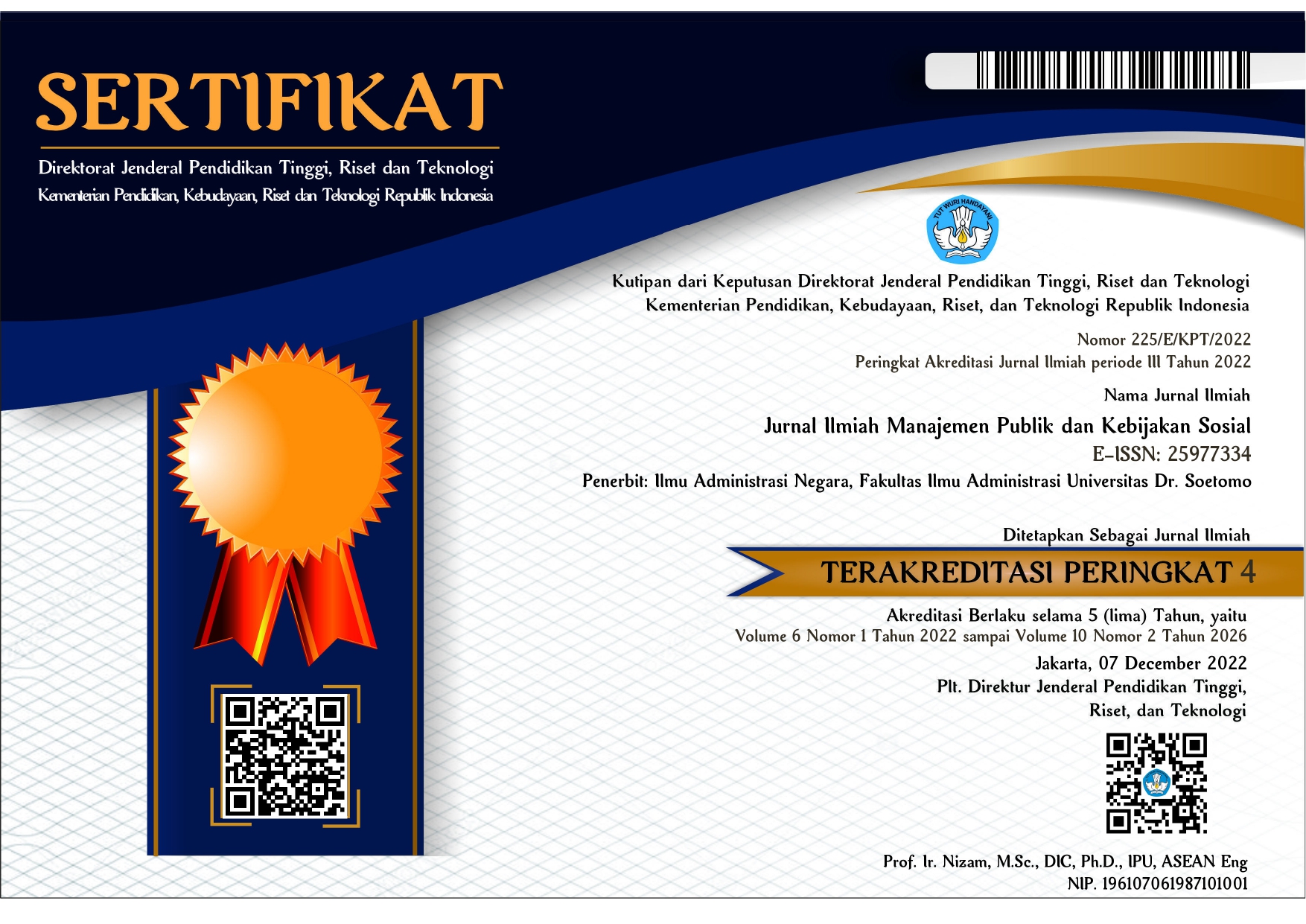Implementasi Kebijakan Lanal Kotabaru (Di Kalimantan Selatan) Dalam Pemberdayaan Masyarakat Nelayan
 Abstrak views: 441
,
Abstrak views: 441
,
 PDF (English) downloads: 1497
PDF (English) downloads: 1497
Abstrak
In developing countries, fishermen are a group of society experiencing social problems such as
poverty and education. The marine high posttension of Indonesia should heve made the
fishermen wealthy. In contrast, their economic condition is still so far from wealth, so they
really need empowerment in order to reach their better future. Kotabaru Lanal Station is one of
the institutions conducting empowerment for the fishermen in the its responsibility area through
the empowering programs. To conduct the empowering programs, Kotabaru Lanal Station
cooperates with Kotabaru Regency Government, the empowerment partner.
This qualitative research uses the main theory of George Edward III Implementation consisting
of four variables, i.e. communication, bureaucracy structure, resources, and disposition. The
policy implementation of Kotabaru Lanal Station in fishermen community empowerment has
been done well through socialization activities, social assistances, and training, that impacting
positively to Kotabaru fishermen development. The blocking factors to conduct the programs
are the minimal budget and the limited human resources of Kotabaru Naval Station. The
supporting factors to conduct the programs are the supports of Kotabaru Naval Station
personnels, Kotabaru Regency Government, and the fishermen.
Authors who publish with JIMPKS: Jurnal Ilmiah Manajemen Publik dan Kebijakan Sosial agree to the following terms:
-
Authors retain copyright and grant the journal right of first publication with the work simultaneously licensed under a Creative Commons Attribution License (CC BY-SA 4.0) that allows others to share the work with an acknowledgment of the work's authorship and initial publication in this journal.
-
Authors are able to enter into separate, additional contractual arrangements for the non-exclusive distribution of the journal's published version of the work (e.g., post it to an institutional repository or publish it in a book), with an acknowledgment of its initial publication in this journal.
-
Authors are permitted and encouraged to post their work online (e.g., in institutional repositories or on their website) prior to and during the submission process, as it can lead to productive exchanges, as well as earlier and greater citation of published work.









